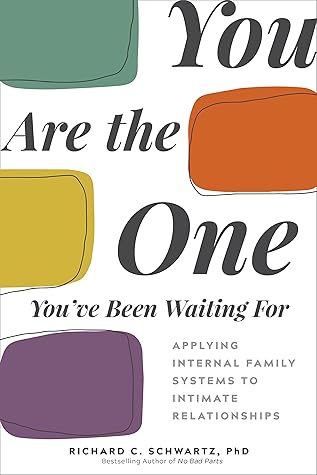More on this book
Community
Kindle Notes & Highlights
Started reading
May 28, 2025
survival terror and sense of doom are pervasive.
How does your exiles’ sense of unlovability affect your relationships? Of course, if you believe at your core that you are unlovable, you will have tremendous fear of having that confirmed by being rejected. As a result, some people don’t take the risks necessary to find a good partner, keeping a distance from whoever tries to get close for fear that the other will see how vile they are. Other people become narcissists, constantly trying to fill their bottomless pit of worthlessness with the attention or accolades of others.
With the burden of unlovability comes not only survival terror, as mentioned earlier, but also an intense drive to be redeemed—to have the caretaker who originally gave you the message that you are unlovable change their mind and tell you that they do indeed value you.
The girl said that if he didn’t love her, there must be something wrong with her.
At some point, the girl dropped her stoic mask and fell sobbing into Tina’s arms. When the girl was ready, Tina took her out of that scene to live in her apartment with her and continued to shower her with love. The worthlessness and unlovability lifted out of the little girl’s body, replaced by a calm peacefulness.
There are many variations, one of which is the “tarnished halo” pattern in which you become dissatisfied when your chosen redeemer starts to like you (“She can’t be that great if she thinks I’m attractive.”)
To deal with the burden of unlovability, our culture offers two doors: (1) find a redeemer to prove the unlovability wrong or (2) find activities or substances to distract from it (medication, TV, internet, work, shopping, drugs and alcohol, or other addictive behavior).
most abused children
their young minds can find no other explanation for why adults would treat them so badly. Also, it is safer for a child to hate themselves than to be angry at the abuser, who will only hurt them more if they show any defiance. If you were abused, it is likely that you have childlike exiles frozen in time when the abuse took place that hold fast to this kind of self-loathing.
but also with a conviction that the pain of losing it is so horrible that it is better to never open to it again.
if you become highly dependent on, controlling of, or codependent with your designated redeemer—because you feel so unlovable—they will lose respect for you and treat you poorly, confirming your beliefs about yourself.
It is hard, however, to know exactly what your exiles’ beliefs
about love are until you actually listen to them directly. That may not be possible at this point because your protectors may not be ready to let you listen to them.
fear of abandonment, fear of engulfment, rejection,
Now, focus on your memory of that feeling and see if you can sense where that part is located in
or
This highlight has been truncated due to consecutive passage length restrictions.
around your body. Notice how you feel toward that vulnerable part of you. Tell any parts that fear or dislike it that you are just going to get to know it a little...
This highlight has been truncated due to consecutive passage length restrictions.
attachment theory.
the kind of attachment an
infant forms to a parent will have a huge impact on their development.
Attachment Reinjuries The acts that created these beliefs and emotions in your exiles in the first place are called attachment injuries.
an attachment reinjury.
vulnerable to attack. Before this work, if anyone, but particularly


